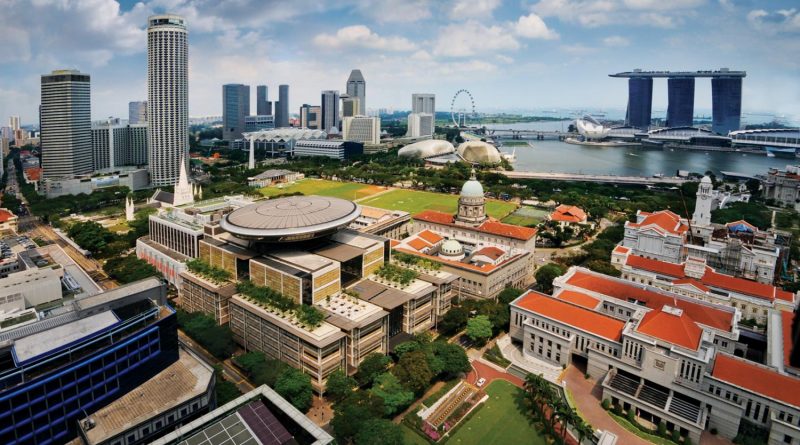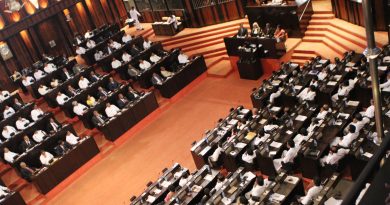65% property sales by locals, 27% by expat Sri Lankans
While the construction industry is booming in the country on one hand, the demand for real estate properties is also increasing on the other hand. According to data collected by the real estate industry, 65 per cent of property buyers are locals, 27 per cent are expatriate Sri Lankans and the remaining 8 per cent are foreigners.
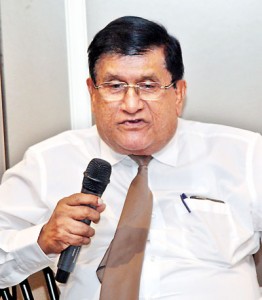
C.A. Wijeyeweere
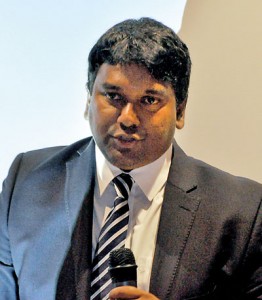
Daham Gunaratne
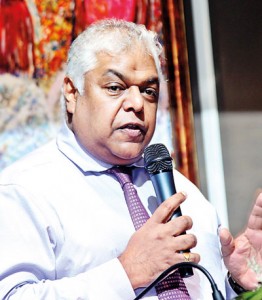
Pradeep Moraes
Pilots, consultant doctors and top businessmen have been identified as exponential investors in properties in Sri Lanka.
These details were revealed by a panel of experts during a vibrant and lively discussion organised by the Sunday Times Business Club (STBC) on ‘Real Estate Trends’ at the Movenpick Hotel in Colombo last Tuesday, to a room-filled audience.
Three eminent panelists – Condominium Management Authority (CMA) Chairman, C.A. Wijeyeweere; Indocean Developers (Pvt) Ltd Director, Pradeep Moraes and Lanka Property Web Managing Director, Daham Gunaratne – from different backgrounds shared their views and trends on the thriving real estate industry.
High demand for condominiums
Mr. Wijeyeweere stated that condominium is a western life style of living, brought into the urban area of eastern countries due to the lack of serviced land and increasing population density. When the CMA was established in 2005 in Sri Lanka under Act no 24 of 2003 there were only 300 apartments (units) completed whereas in 2017, 23,000 apartments have been completed. CMA is a regulatory body that has to strike a perfect balance between the developers and the prospective buyers, he added.
He also mentioned that there is a significant demand for condominiums in Sri Lanka. People are encouraged to buy due to factors such as modern facilities, good locations, secured parking facilities, flexible payment schemes offered by developers and so on.
The CMA and the Department of the Architecture of the University of Moratuwa conducted a study with regards to lack of non-conformity to current planning and building regulations, Mr. Wijeyeweere stated. This revealed that a healthy balance between the built and open space is absent in most of the current condominiums whereas the current practice of condominium development is motivated by maximizing built area for profit. There is excessive flexibility of regulations, he stressed while elaborating that the current zoning regulations determine the type of use in a zone only whereas residential zones, the floor area ratio, plot coverage and building height do not dictate the zoning. The current zoning regulations do not take into account the differences in scales of various residential building forms that result in urban sprawl, noted Mr. Wijeyeweere.
Mr. Wijeyeweere pointed out the areas a prospective condominium buyer should look for before purchasing any property. The buyer can request the developer to furnish the ownership of the land where the proposed condominium is to be developed and request copies of those documents for verification purposes. Copies of the ownership certificate issued by the Local Authority, street line certificate, preliminary clearance letter issued by the CMA, approved building plan and the development permit issued by the Urban Development Authority or the local authority are documents a buyer can request a developer and in turn the developer must provide the details, noted Mr.Wijeyeweere.
The buyer must also investigate whether the developer has obtained the Central Environmental Authority approval, arrangements the developer has made for supply of water, electricity, sewage system, generators, and backup system for water and electricity, parking facilities for each condominium are of primary importance. They should also be aware of the developers’ plan for storm water drainage system. Most importantly buyers must know the period of construction and the anticipated date of issuing deeds.
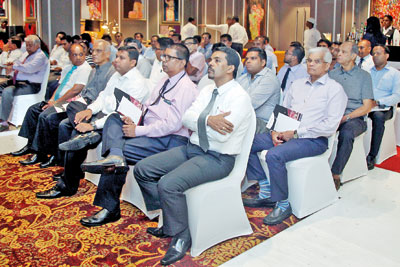
Audience. Pix by Priyantha Wickramaarachchi
“No bubble”, says Altair director Pradeep Moraes, Director of Indocean Developers (Pvt) Ltd (Altair) rejecting claims of a “bubble” in the real estate sector as often spoken of by some in Sri Lanka. 90 per cent of luxury condominium purchases are equity based, he said while adding there are capital gains from 10-12 per cent year-on-year while the rental yields are 6-8 per cent per annum. Capital and profits can be repatriated and they can (also) be freely assigned during construction period, he added.
He also mentioned that the country is witnessing an increase in foreign direct investments while international companies are relocating to Sri Lanka. The real estate sector is also experiencing an improved debt financing and prudent lending by banks, he added.
Mr. Moraes noted that 65 per cent of properties are bought by locals. Pilots, consultant doctors and top businessmen are among the high end property buyers in Sri Lanka, he added. 27 per cent property sales are made to expatriate Sri Lankans and the remaining 8 per cent to foreigners, Mr. Moraes said explaining the breakdown of sales.
He also stated investment for development in Sri Lanka primarily comes from overseas such as China Harbour Engineering Company, AVIC Astoria Apartment, Shangri-La, Zhong Tian, TATA, South City Group, ITC, Silverneedle, Imperial Builders and so on.
He also explained that foreigners are entitled to purchase condominiums on freehold basis and 10 years resident visa will be given for purchases of apartments over US$ 500, 000 (as per budget proposals).
Elaborating on the housing market in Colombo, Mr. Moraes stated there are 10,000 apartments in Colombo which is 1.7 per cent of the total housing, while 12,000 units of apartments are under construction. Around 22,000 to 25,000 units will be completed by 2021 which will be 4-5 per cent housing in Colombo. Looking at the regional statistics, 70 per cent of housing is apartments in Central Kuala Lumpur, 80 per cent in Central Bangkok and 90 per cent in Central Mumbai.
Central Bank findings reveal 100 per cent sales of completed luxury condominium projects and 70 per cent sale of luxury condominium projects that are under construction, Mr. Moraes added.


Demand
Lanka Property Web Managing Director, Daham Gunaratne in his presentation revealed that people are not searching for lands anymore, rather they are looking for apartments or houses that are already built by some reputed company in Sri Lanka. He said that the website has some four million views every month with 230,000 property advertisements online.
Property prices have been increasing since 2012 while land prices are skyrocketing in the real estate sector in Sri Lanka, he noted. Colombo 7 (Cinnamon Gardens) is slowly adapting to the apartment culture while the price of an apartment (there) has gone up to Rs. 77 million, noted Mr. Gunaratne.
The Central Province is booming in the real estate segment since people are looking for properties in cities like Kandy.
According to research, Mr. Gunaratne revealed that from people who are looking for avenues for investments, 44 per cent are willing to invest in real estate, 34 per cent into fixed accounts, 17 per cent into unit trusts and 5 per cent into the stock market. The real estate market is rapidly growing, people are buying and selling at the same time, he added. Movenpick is the host hotel of the club while the National Development Bank is STBC’s main sponsor.
| Statistics on real estate and property | |
| Top 10 (preferred) locations for sales (apartments/property):(1) Colombo, (2) Kandy, (3) Negombo, (4) Wattala, (5) Dehiwela, (6) Nugegoda, (7) Piliyandala, (8) Mount Lavinia, (9) Malabe and (10) Galle
Top 10 (preferred) locations for rentals: Top 10 (preferred) locations for lands: Note: Colombo is not in demand since there is very little land available for sale Avg. sales by region: December 2017 Avg. (Rs.)
(Note: These are ‘asking prices’ (offered by buyers) which appear in the Lanka Property website) Source: Lanka Property web |
| Residential condo market in Sri Lanka | |
Source: Indocean Developers |

